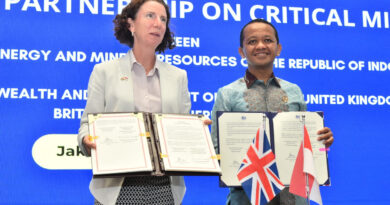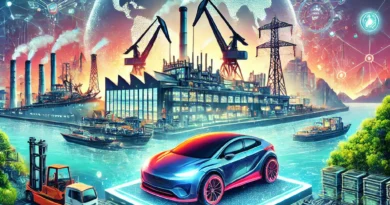Indonesia Prioritizes Mineral Downstreaming for Clean Energy Independence
Jakarta, Indonesia – The Indonesian government is actively pursuing mineral downstreaming as a strategic move to enhance the economic benefits of domestic mineral resources and support the country’s transition to net-zero emissions (NZE). This initiative is especially focused on the management of 47 critical minerals, with seven being prioritized: nickel, iron, tin, copper, bauxite, gold, and silver. The effort was highlighted by Farid Wijaya, a Senior Analyst of Material and Renewable Energy at the Institute for Essential Services Reform (IESR), during a workshop organized by the Natural Resource Governance Institute (NRGI) and ViriyaENB on Tuesday, December 10, 2024.
According to Farid Wijaya, the downstreaming process is crucial for increasing domestic added value. Instead of exporting raw materials, Indonesia can export higher-value products such as ingots, foil, solar cell components, and battery modules. This can enhance domestic economic activity, broaden the tax base, and increase national revenue. Furthermore, downstreaming opens investment opportunities for developing high-tech processing and manufacturing industries, both domestically and internationally.
Farid Wijaya stated, “Nickel is a major focus due to its role in the battery supply chain, while aluminum and copper are vital for renewable energy infrastructure such as solar power plants (PLTS), wind power plants (PLTB), as well as hydrogen and nuclear technologies. Through downstreaming, Indonesia can reduce its dependence on imports of clean energy components, create jobs, and improve national manufacturing and industrial capacity”.
The strategy aims to transform Indonesia into a technology hub and a producer of renewable energy technologies, batteries, and electric vehicles. This initiative is intended to raise the Domestic Component Level (TKDN), strengthen the industrial ecosystem, and increase national self-sufficiency in clean energy. “By utilizing mineral resources wisely, the country can embrace a cleaner and more sustainable future,” Farid added.
Ultimately, mineral downstreaming is viewed not only as an economic endeavor but as a strategic step towards achieving NZE and realizing the vision of “Indonesia Emas 2045”. By combining mineral wealth with forward-thinking industrial policies, Indonesia seeks to create added value, increase the state’s revenue contribution, and establish energy independence for future generations. (Source: https://iesr.or.id/)

